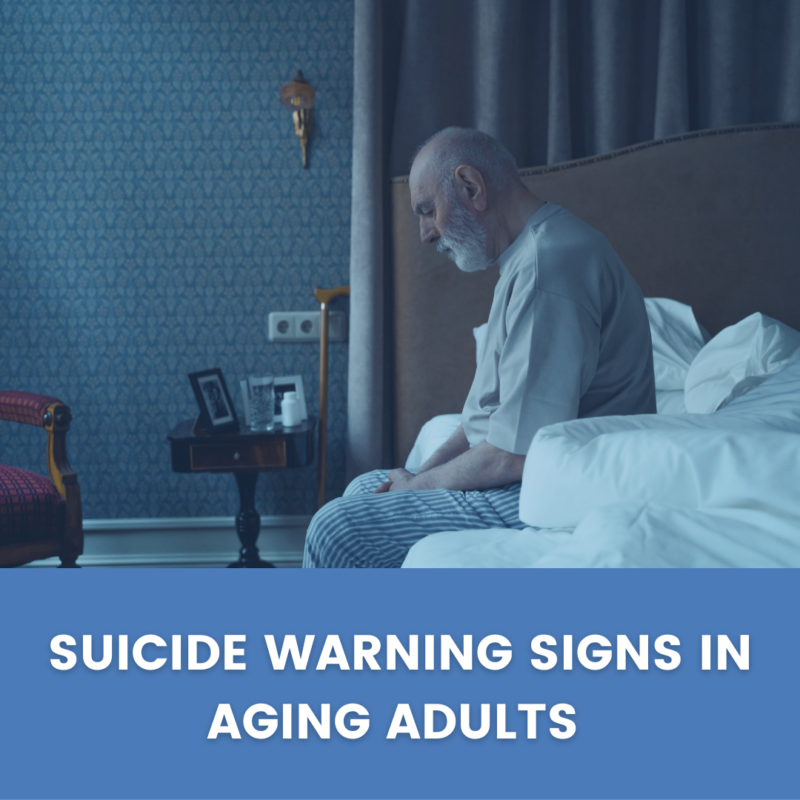
Unfortunately, our aging loved ones are not always exempt from suicidal thoughts. According to the National Council on Aging, suicidal behavior is more common, especially if they are combatting loneliness. This month, we want to share the warning signs of suicide in aging adults so that you know when to take action.
Aging adults often deal with being homebound, grieving the loss of a spouse or friend, and having little to no social connection. Oftentimes, it can be extremely lonely which is why depression in seniors is more common. Now, how do you know if your aging loved ones are at risk for suicide? Risk factors for suicide in aging adults may include depression, substance abuse, withdrawal from family, physical illness, or a family history of suicide. Here are other warning sides that may indicate your loved one is struggling:
- Increased use of drugs or alcohol.
- Feelings of hopelessness or helplessness.
- Giving away their personal belongings.
- Extreme mood swings.
- Feelings of being trapped or a burden to others.
It’s important to talk to your aging loved ones who are showing any signs that they may be struggling. Sit down and ask them how they are feeling and be a listening ear without judgment. When talking with them, observe how they are speaking. If you believe that your aging loved one may be suicidal, make sure to remove any objects that can be used as an attempt. You can also have your struggling loved ones call 988. Dialing this number will connect you to the Suicide and Crisis Lifeline which gives people access to lifesaving suicide prevention and crisis services.
If you or a loved one are looking for a care manager that you can trust, contact Preferred Living Solutions at 919-554-0675 and let us help you make a plan and ease the way.
https://ncoa.org/article/suicide-and-older-adults-what-you-should-know

